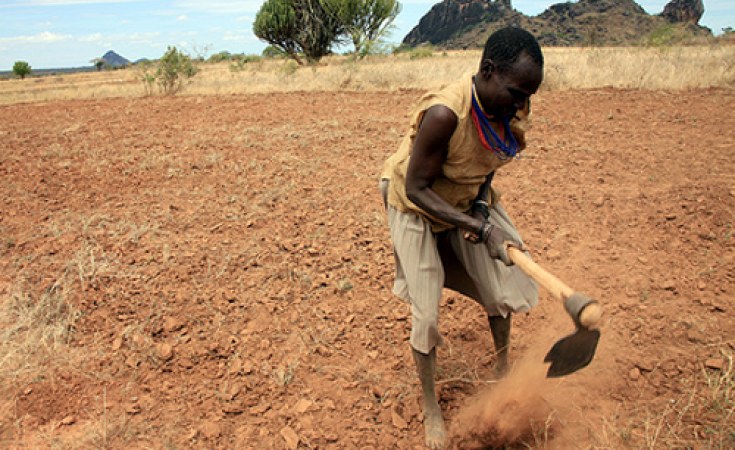The recent rejection of a permit application for the general release in South Africa of a potato that has been genetically altered has received a standing ovation from the African Centre of Biodiversity (ACB).
The SpuntaG2, which is designed and developed by South Africa's Agricultural Research Council, contains an introduced protein that kills the caterpillar of the Potato Tuber Moth (PTM), a pest believed to be responsible for losses of up to R40 million (U.S. $5.2 million) to the South African potato industry.
According to the developers, small-scale farmers, who cannot afford to spray chemicals to protect their crops, suffer most from the pest, and therefore would benefit substantially from the new potato. The ACB, which has been monitoring the introduction of GM crops in South Africa for the past ten years, rejects this statement as well as other pro-SpuntaG2 claims.
AllAfrica contributor Miriam Mannak spoke to ACB researcher and outreach officer Haidee Swanbee, who has been lobbying for support for sustainable forms of agriculture, including organic and non-chemical farming, for the past decade and a half.
What is the main problem with the SpuntaG2, according to ACB?
The science is too young to prove that GM crops are safe years from now.
What if the genes that are added to the crops trigger other genes from behaving erratically at some point down the line? What if they stimulate new allergens? What if these crops become invasive? There are simply too many questions and too few answers. I think we need to slow down science, and rather put much more research into the long-term safety of these GM products as well as into the viability of other non-chemical models of agriculture. Boosting food production to increase food security is important, yes, but there are many ways to skin a cat.
One of the reasons behind the rejection of the permit application is that the SpuntaG2 will not be beneficial to the potato industry. What are your thoughts?
Companies such as MacDonald's, which gets its potatoes from McCain's [a food company], are not interested in buying these potatoes because their customers do not want to eat them. The same counts for South Africa's main supermarkets.
We also foresee problems when it comes to exporting the SpuntaG2. At the moment, seven percent of South African potatoes are being exported, of which 90 percent is going to countries in the Southern African Development Community. Most of the countries in this region do not have GM legislation in place, and are therefore not keen.
You are working closely with small-scale farmers in South Africa for whom the SpuntaG2 is developed. How do they perceive the threat of PTM?
The farmers we have spoken to are not too worried about this particular pest. The problems that are most urgent are land tenure and access to land, and irrigation infrastructure. Most of the small-scale agriculture in South Africa is rain fed. With changing weather patterns and erratic rainfall, access to water is very important. Farmers have also told us that when it comes to pests, rodents cause much more damage to their crops, and potatoes specifically. If we talk about helping small-scale farmers, we have to listen to what they have to say instead of thinking for them.
What if the SpuntaG2 proves to be safe for both humans and the environment - now as well as in the future. Will ACB change its stance?
I am afraid not. We reject the chemical agricultural model and GM altogether. We rather want governments to put more effort in agricultural practices that have been proved to be safe and do not harm the environment - organic farming, for instance. Many small-scale farmers we have spoken to have indicated they much rather would like to learn how to boost their production in a natural way, without the interference of chemicals and technologies they do not understand.


